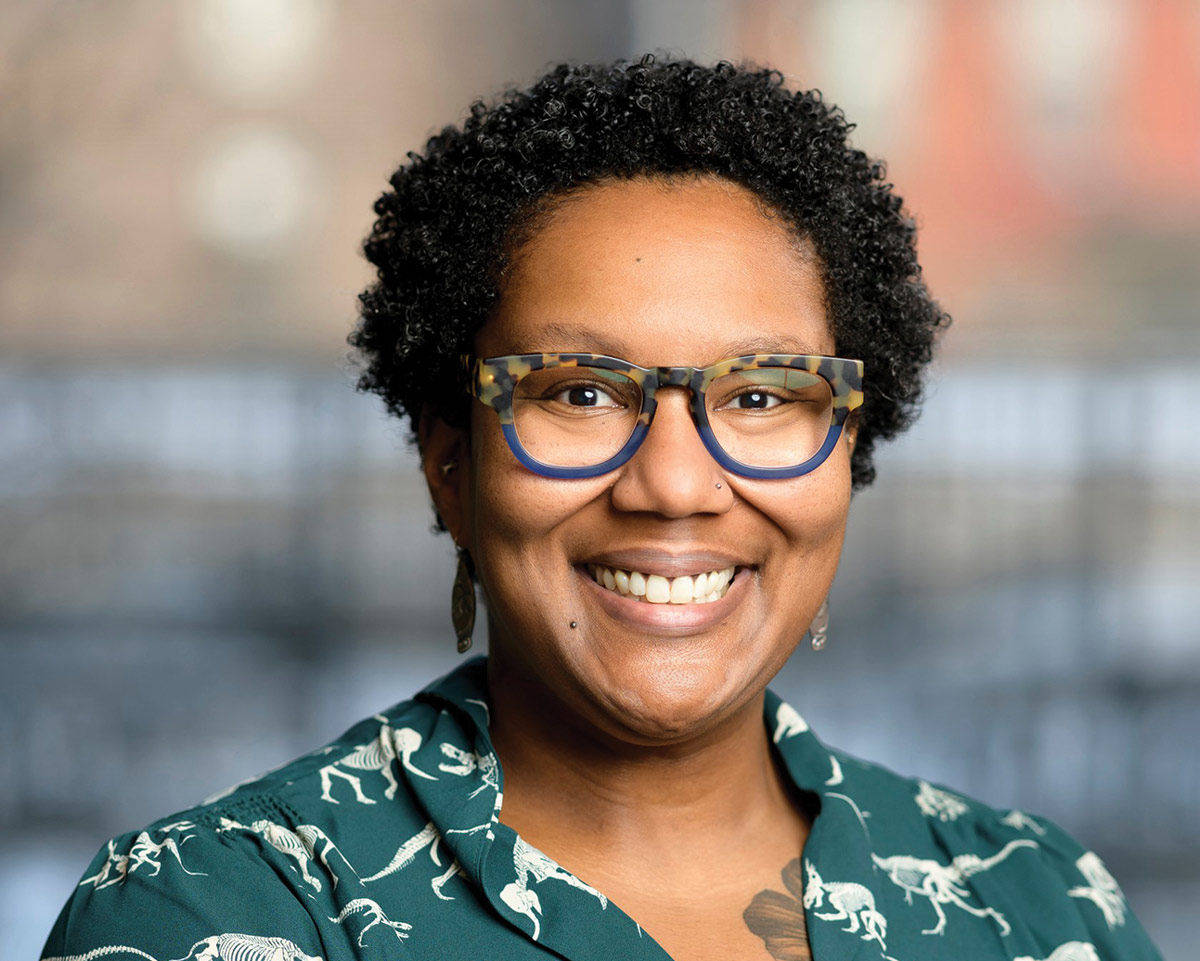
breaking down barriers
“I used to work pediatric oncology at the bedside. Patients come in with cancer and you’re treating them and they’re acutely ill. I did that through the pandemic and got a little burnt out,” says Hightower. “We started a new program called the Adolescent and Young Adult Program. That focuses on patients who are between the ages of 15 and 39, providing additional support to them.”
The needs of this age group are very different. In addition to trying to beat cancer, they’re trying to figure out high school and college, careers, and possibly starting a family.
“I try to facilitate getting them additional resources,” says Hightower, from help with child care to selecting an insurance provider. That’s the advocacy part. The education and translation comes in when Hightower explains to patients, “This is what this means when a doctor is saying this, this is how you read your labs, this is how you figure out how many pills to take each day.”
As a Black nonbinary nurse, Hightower also focuses on health equity.
“A really big push in our hospital right now is making sure that [LGBTQ patients and patients of color] feel cared for, heard, respected, and there are a lot of different initiatives in place to do that.”
Hightower sits on the hospital’s LGBTQ Clinical Advisory Committee, looking at policies and standards of care for LGBTQ patients. “The treatment parameters might be different because of the medications or the hormones that they’re on. It’s important to make sure that providers know that,” says Hightower.
“You can use your voice to really send a powerful message,” says Hightower. “You can be the one queer, Black person in the room, and that representation matters. You can be that advocate and stand up for people. I learned a lot of that from being at Swarthmore, how different people move through spaces differently and what we have to do to adapt our spaces to fit those populations.”
Hightower, who majored in religion and minored in Black studies, sees critical thinking as the throughline between their time at Swarthmore and nursing, which they studied at Johns Hopkins. “It’s looking at what’s in front of you and trying to figure out ‘How did this thing become what it is?’ and then ‘What are the different things that are connected to it?’” says Hightower. “I really look at our patient population and think about the barriers to care. How do I try to relieve those barriers, and then try to figure out where the patient goes next?”